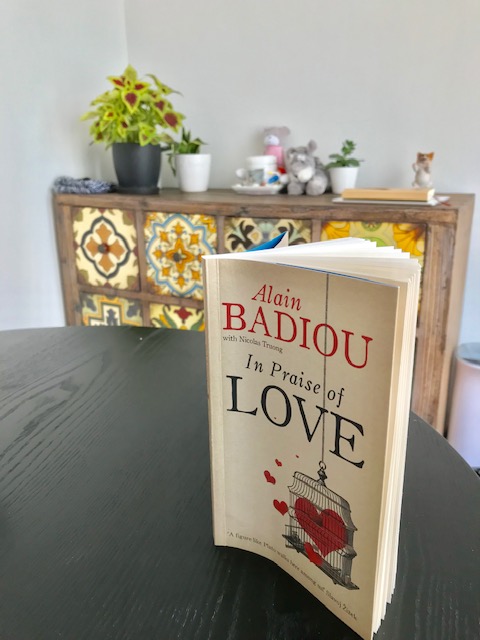Alain Badiou on Love.

Badiou takes the recognition of difference to be an essential feature of love, the recognition of two different subjects, different points of view on reality, and the subsequent construction of a new reality based on that difference. Such a difference is, in every case, new.
That is why love that is real is always of interest to the whole of humanity, however humble, however hidden, that love might seem on the surface.
In Praise of Love (p. 36)
In every case, the difference creates something new–an idea that suggests love–or the grounds of love (the event at its narrative center)–is unpredictable. This is, I believe, captured by Peirce’s category, Secondness–the barely understood recognition of otherness, a felt resistance (to prejudice), a risk, etc., that could only be pointed at, but not fully articulated. The first encounter is a paradigm case of a chance event. Yet, declaration of love turns it into destiny. To declare one’s love is to recast the meaning of an arbitrary, contingent chance event in term of necessity.
That is the moment when chance is curbed, when you say to yourself: I must tell the other person about what happened, about the encounter and the incidents within the encounter. I will tell the other that something that commits me took place, at least as I see it. In a word: I love you.
(p. 43)